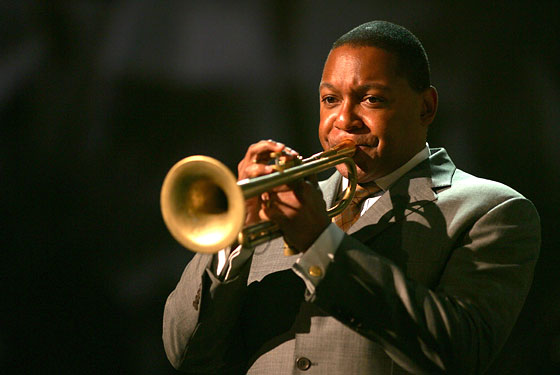
Dear Concord Music Group-
Normally, I celebrate Christmas on December 25, but I had a reason to do it early this time around. Your publicist sent me remastered copies of "Thelonious Monk with John Coltrane," "Jazz at Oberlin: The Dave Brubeck Quartet," Art Pepper Meets the Rhythm Section," Way Out West," and "Virtuoso," five classic jazz albums every jazz purist and budding purist should have. My readers haven't heard from me since March 23rd because I've been hole up in my study listening to these remastered pearls. I told my wife not to disturb me. At dinnertime, knock twice. Then leave it outside the door. I haven't showered since I began listening to the albums. I'm kidding. Seriously, spending quality time with the reissues was heavenly to say the least.
The digitally remastered albums are so clear and distinct I felt as if the musicians were giving me a private concert. Monk and Coltrane were the perfect companions. When they played and recorded together, their styles didn't clash. "Jazz at Oberlin" remains my favorite Brubeck album. The pianist and his buddy the great alto saxophonist Paul Desmond were a stunning jazz tag team. In 1957, trumpeter Miles Davis subcontracted his rhythm section to alto sax man Art Pepper. I always felt Pepper never received his just due. He was a wizard on the alto, and unfortunately underrated. I liked Pepper's mellow phrasing, and he could sprint through chord progressions without losing his breath. He demonstrates both styles throughout "Art Pepper Meets the Rhythm Section". At the time, Davis had Philly Joe Jones, Paul Chambers, and Red Garland on staff.
Many years ago, I read Pepper's autobiography "Straight Life the Story of Art Pepper". Pepper was a twisted dude, who lived a troubled life, but he made some wonderful music nonetheless. As I recall, at the end of the book, Pepper recounted winning a cutting contest. He took on fellow sax man Sonny Stitt. For those unfamiliar with jazz parlance, a cutting contest is when a musician out plays a rival. I thought Pepper stretched the truth a bit. Anyway, Pepper didn't squander his time with Miles' rhythm section. They adapted to Pepper's dual styles. I'm listening to the album as I write. Pianist Red Garland is tickling the keys like an infant's stomach on "Red Pepper Blues". And Paul Chamber is picking at the bass strings like removing lint from his Sunday suit. I wonder if Davis worried, some of his guys would defect. As for Pepper cutting Stitt's head, maybe I should've given Pepper the benefit of the doubt. Maybe he had an extraordinary night. The undisputed Sonny Rollins knows a thing or two about being extraordinary.
For six decades now, Rollins has been the reigning king of the tenor sax. "Way Out West" was Rollins in his glory, playing with a trio bassist Ray Brown and drummer Shelly Manne. In 2007, I interviewed Rollins. I asked why he excluded the piano. Rollins said he isn't anti-piano. It had been his experience that some musicians are too depended on the piano. The pianist can compensate or cover up mistakes. A musician has to be exceptional to make it in a piano-less band, Rollins said. I always believed, until recently, a band couldn't swing without a pianist. That outlook changed last year, listening to drummers Mat Wilson album "That Gonna Leave a Mark" and Jeff "Tain" Watt's date "Watts". Neither employed a pianist. I didn't realize it until I was on my third helping of each albums. I no longer believe that. Studying "Way Out West," I concur with Rollins. theory. Brown and Manne virtuosity drips off this recording.
Guitarist Joe Pass is another virtuoso. On the amply "Virtuoso," Pass decided to do this album stag. I listened to the album while driving. I like driving alone because I get to have my Walter Mitty-like moments where I envision myself in various incarnations. I always have the car stereo blaring. Sometimes, I envision myself as a renowned jazz pianist a la Bud Powell, Craig Taborn, Cyrus Chestnut, and Walter Bishop Jr. Maybe one day I'll get up the nerve, and have enough disposable income to take piano lessons. Of course, I'll never reach the pianists that I named ability.
I recall listening to an interview with bassist Charles Mingus. He made a solo piano album. He said although he enjoyed playing the piano, he knew he'd never be a virtuoso on that instrument. It was too late in life for him to develop his left hand. Anyway, listening to "Virtuoso," I felt as if Pass was sitting in the passenger seat of my Jeep Wrangler strumming breathtaking melodies. Spending time with the reissued albums has been a treat indeed. Christmas hit early this year, and I'm not ashamed at, 43, to admit I still believe in Santa Claus.
Thanks,
Charles






